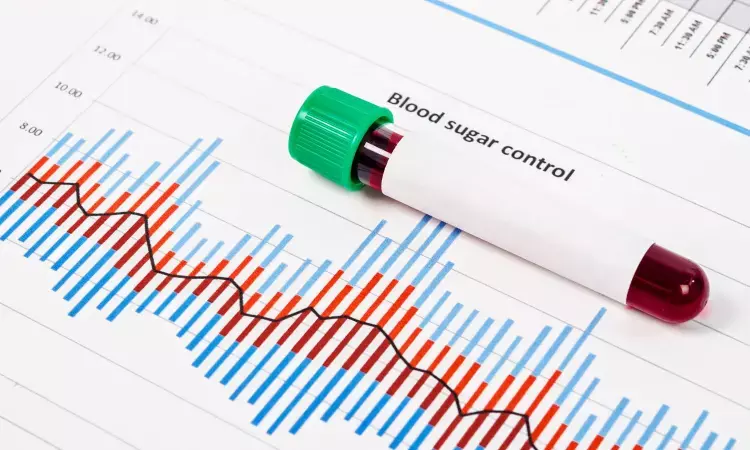- Home
- Medical news & Guidelines
- Anesthesiology
- Cardiology and CTVS
- Critical Care
- Dentistry
- Dermatology
- Diabetes and Endocrinology
- ENT
- Gastroenterology
- Medicine
- Nephrology
- Neurology
- Obstretics-Gynaecology
- Oncology
- Ophthalmology
- Orthopaedics
- Pediatrics-Neonatology
- Psychiatry
- Pulmonology
- Radiology
- Surgery
- Urology
- Laboratory Medicine
- Diet
- Nursing
- Paramedical
- Physiotherapy
- Health news
- Fact Check
- Bone Health Fact Check
- Brain Health Fact Check
- Cancer Related Fact Check
- Child Care Fact Check
- Dental and oral health fact check
- Diabetes and metabolic health fact check
- Diet and Nutrition Fact Check
- Eye and ENT Care Fact Check
- Fitness fact check
- Gut health fact check
- Heart health fact check
- Kidney health fact check
- Medical education fact check
- Men's health fact check
- Respiratory fact check
- Skin and hair care fact check
- Vaccine and Immunization fact check
- Women's health fact check
- AYUSH
- State News
- Andaman and Nicobar Islands
- Andhra Pradesh
- Arunachal Pradesh
- Assam
- Bihar
- Chandigarh
- Chattisgarh
- Dadra and Nagar Haveli
- Daman and Diu
- Delhi
- Goa
- Gujarat
- Haryana
- Himachal Pradesh
- Jammu & Kashmir
- Jharkhand
- Karnataka
- Kerala
- Ladakh
- Lakshadweep
- Madhya Pradesh
- Maharashtra
- Manipur
- Meghalaya
- Mizoram
- Nagaland
- Odisha
- Puducherry
- Punjab
- Rajasthan
- Sikkim
- Tamil Nadu
- Telangana
- Tripura
- Uttar Pradesh
- Uttrakhand
- West Bengal
- Medical Education
- Industry
Blood sugar control lowers mortality risk among elderly diabetes patients with impaired cognition: Study

Type 2 diabetes and cognitive impairment are prevalent conditions among older adults, posing significant challenges for healthcare providers. Managing diabetes and maintaining optimal HbA1c levels are essential for preventing complications, but the impact on mortality in individuals with cognitive impairment is not well understood. A recent retrospective cohort study aimed to determine the association between HbA1c levels within the recommended target range and mortality risk in this population.
This study was published in the journal Diabetes Care by Sugimoto T. and colleagues. To investigate the relationship between HbA1c levels within the target range and mortality risk in older adults with cognitive impairment, both with and without type 2 diabetes. The retrospective cohort study included 1,528 individuals without diabetes and 468 patients with type 2 diabetes aged ≥65 years visiting a memory clinic.
Patients with diabetes were categorized into three groups based on their HbA1c levels relative to the recommended target range. The impact of diabetes and HbA1c levels on mortality was assessed using Cox proportional hazards models. The key findings of the study were:
• Over a median follow-up period of 3.8 years, 353 patients (17.7%) died.
• Patients with type 2 diabetes and HbA1c levels above the target range had a 70% higher risk of mortality compared to those without diabetes.
• Similarly, patients with diabetes and HbA1c levels below the target range had more than twice the risk of mortality.
• However, individuals with diabetes and HbA1c levels within the target range did not exhibit a higher risk of mortality compared to those without diabetes.
The study highlights the importance of maintaining HbA1c levels within the recommended target range for older adults with cognitive impairment and type 2 diabetes. Patients with HbA1c levels within the target range did not show an increased risk of mortality, providing empirical support for current guidelines.
Reference:
Dr Riya Dave has completed dentistry from Gujarat University in 2022. She is a dentist and accomplished medical and scientific writer known for her commitment to bridging the gap between clinical expertise and accessible healthcare information. She has been actively involved in writing blogs related to health and wellness.
Dr Kamal Kant Kohli-MBBS, DTCD- a chest specialist with more than 30 years of practice and a flair for writing clinical articles, Dr Kamal Kant Kohli joined Medical Dialogues as a Chief Editor of Medical News. Besides writing articles, as an editor, he proofreads and verifies all the medical content published on Medical Dialogues including those coming from journals, studies,medical conferences,guidelines etc. Email: drkohli@medicaldialogues.in. Contact no. 011-43720751


